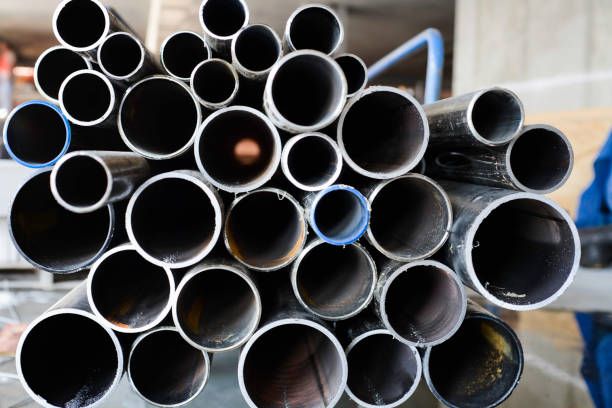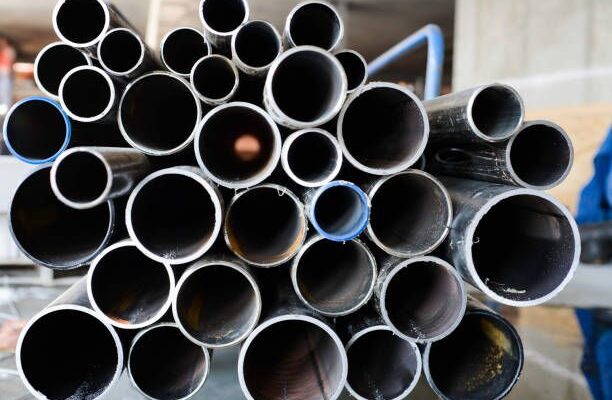
Aerospace and motorsport industries operate under extreme conditions where material failure is not an option. Components in these sectors face intense mechanical stress, temperature fluctuations, and constant vibration during operation. Choosing reliable 4130 grade chromoly tubing suppliers ensures access to materials that meet the demanding performance standards required in high-stakes applications.
Working with experienced 4130 chromoly tubing suppliers guarantees access to materials that meet stringent industry standards and specifications. The difference between average and exceptional suppliers often shows up in certification documentation, material consistency, and traceability. Poor material quality can lead to catastrophic failures in high-stress environments where components face extreme temperatures and mechanical loads.
Understanding 4130 Chromoly Steel Properties
- Composition and Strength Characteristics: This low-alloy steel contains approximately 0.30% carbon, 0.95% chromium, and 0.20% molybdenum, creating a material with tensile strength ranging from 90,000 to 105,000 psi in normalized condition. The alloying elements provide enhanced hardenability and resistance to wear compared to standard carbon steels. Heat treatment can further increase strength properties to over 120,000 psi when applications require maximum performance.
- Weight Reduction Benefits: The material density of 4130 steel sits at 0.283 pounds per cubic inch, similar to mild steel, but its superior strength allows designers to use thinner wall sections. This characteristic makes it valuable in racing chassis construction and aircraft structures where every ounce matters. A 4130 tube can often replace a heavier mild steel component while providing equal or better structural integrity.
- Weldability Advantages: Unlike many high-strength alloys, 4130 chromoly maintains good weldability using standard TIG or MIG techniques when proper procedures are followed. Preheating to 200-400°F and post-weld stress relief help prevent cracking in critical joints. The material responds well to both fusion welding and brazing methods, giving fabricators flexibility in joining techniques.
Critical Factors in Supplier Selection
- Material Certification and Traceability: Quality suppliers provide complete mill test reports (MTRs) documenting chemical composition, mechanical properties, and heat treatment history for every batch. These reports trace material back to the original steel mill and confirm compliance with ASTM A519 or AMS 6371 specifications. Missing or incomplete documentation should raise immediate concerns about material authenticity and quality control processes.
- Dimensional Accuracy and Tolerance Control: Precision tubing applications require suppliers who maintain tight tolerances on outside diameter, wall thickness, and straightness. Variations beyond specification can create stress concentrations or fitment issues during assembly. Reputable suppliers use advanced testing equipment to verify dimensions meet customer requirements before shipment.
- Consistency Across Production Runs: Material properties should remain stable whether ordering ten feet or ten thousand feet of tubing. Inconsistent hardness, grain structure, or surface finish between batches complicates fabrication and can compromise structural calculations. Suppliers with robust quality management systems deliver predictable material characteristics that engineers can trust.
Industry Standards and Compliance Requirements
- ASTM A519 Specification: This standard covers seamless carbon and alloy steel mechanical tubing used in applications requiring precise dimensional tolerances and specific mechanical properties. The specification outlines requirements for chemical composition, tensile strength, yield strength, and elongation percentages. Material supplied under this standard undergoes nondestructive testing to detect surface and internal defects.
- Aerospace Material Specifications: Aircraft components often require material meeting AMS 6371 or AMS 6360 standards, which impose stricter controls than commercial specifications. These aerospace standards mandate enhanced traceability, additional testing, and documented quality systems throughout the supply chain. Using non-certified material in aerospace applications violates regulatory requirements and creates serious liability concerns.
- Heat Treatment Verification: Proper heat treatment affects material performance significantly in high-stress applications. Suppliers should provide documentation confirming normalization or stress-relief processes were completed according to specifications. Inadequate heat treatment can leave residual stresses that lead to premature failure under cyclic loading conditions.
Applications in High-Performance Environments
- Motorsport Chassis and Roll Cages: Racing regulations often mandate 4130 chromoly for roll cage construction due to its superior energy absorption during impacts compared to mild steel. The material’s ductility prevents brittle fracture while maintaining structural integrity under extreme loads. Professional race teams rely on certified material to meet sanctioning body requirements and ensure driver safety.
- Aircraft Structural Components: Landing gear components, engine mounts, and fuselage frames in light aircraft frequently use 4130 tubing for its strength and weldability. The material performs reliably across temperature ranges encountered during flight operations. Proper material selection and fabrication techniques are essential for components subjected to repeated stress cycles.
- Hydraulic and Pneumatic Systems: High-pressure fluid systems benefit from 4130’s resistance to fatigue and ability to withstand internal pressures without excessive wall thickness. The smooth bore finish of quality tubing minimizes pressure drop and contamination concerns. Material certification becomes vital when system failures could result in equipment damage or personnel injury.
Conclusion
Selecting qualified 4130 chromoly tubing suppliers directly impacts project success in demanding applications where material failure is not acceptable. The difference between certified, traceable material and questionable alternatives shows up in testing results, regulatory compliance, and long-term performance under stress. Engineers and procurement professionals should prioritize suppliers who demonstrate consistent quality control, complete documentation, and understanding of industry-specific requirements. Contact a reputable metal distributor to discuss your specific application needs and ensure you receive material that meets all necessary specifications and standards.
Featured Image Source: https://media.gettyimages.com/id/84146546/photo/steel-pipe.jpg?s=612×612&w=0&k=20&c=5paxJ7KNHWD_EJAy2lkjnUesQ31lxqj07V-4tV_CIrI=

